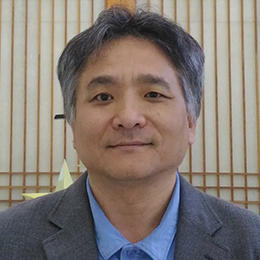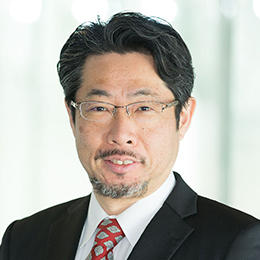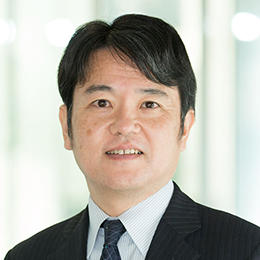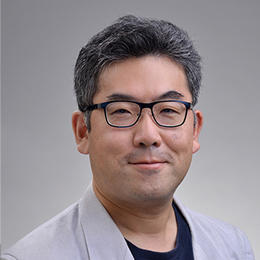- Home
-
Faculty
Faculty
9
Sociology
- 1
Name/Position
Department/Specialty/Research Interest
-
Sociology
Media and Communication Studies, Diffusion Studies, Social PsychologyWhy and how do people use various media? And what do they experience in using them? What factors affect the use of media? My major research concerns include social psychological analysis of media use and communication behavior. I am also interested in the change of production, diffusion, and reception processes of news under the transformation of media environments and media use patterns.
-
 OGURA, YasutsuguProfessor
OGURA, YasutsuguProfessorSociology
Sociology of Life, Life Story ResearchMy basic theme is the "sociology of life," centered on life story research. I have been interested in existential life generated from pathos experiences, encounters, and dialogues, and have been thinking about the state of contemporary society and way of life as back-illuminated by these experiences. In recent years, I have been following the practices of how non-Hibakusha (non-experiencers) can be involved in and pass on the A-bomb experiences as "their own thing," while considering the possibilities of communication and continuity of life, inheritance of memory, and social solidarity in these experiences.
-
Sociology
Cultural Anthropology, Religious Sociology, Science of ReligionMy research theme is to clarify the historical phase of religiosity and spirituality in the modern world from a macro viewpoint, and to construct general theory of meditation from a micro viewpoint. Concretely, my speciality is comparative research on meditation theories including zen, the ki-energy practice of taoism, vipassana meditation (mindfulness), yoga, and spiritual exercise. I have conducted fieldwork in Japan, Korea, and in Europe, focusing on France and Overseas France. Constructing a meditation theory, I also study inter-religious dialogue and contemporary religious culture.
-
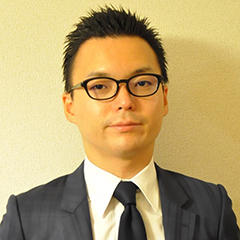 KINOSHITA, ShuAssociate Professorshukinoshita.soc@gmail.com
KINOSHITA, ShuAssociate Professorshukinoshita.soc@gmail.comSociology
Sociology of Health and Illness, Qualitative Social Research, Family SociologyI have been studying dementia from a social constructionist perspective for over 10 years. I am primarily interested in family caregivers. The purpose of my study is to illustrate how family members of elderly Japanese persons with dementia can participate in the caregiving process.
-
 SAKAI, YuichiroAssociate Professor
SAKAI, YuichiroAssociate ProfessorSociology
Family Sociology, Histrical SociologyI have been conducting sociological research on marriage and partnership. My main research interests include historical sociological studies of marriage, qualitative research on de facto marriage, and theoretical studies of family and partner relationships. I am interested in de-standardization of families and communal living.
-
Sociology
Social Psychology, Environmental Behavior, Risk Communication, GamingI am researching social psychology on the topic of persuasive communication and consensus-building. My central research theme is environmental issues. In many cases, some aspects of actions that deal with ecological risks entail conflict between benefits for individuals and society as a whole. To solve this problem, I’ve developed educational games called “Persuasion Game” and “Stakeholders” to simulate real community as tools for risk communication.
-
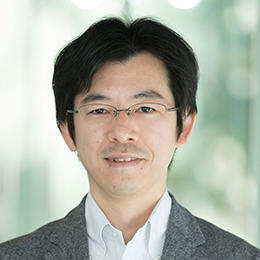 CHIKAMORI, TakaakiProfessortchikamori@gmail.com
CHIKAMORI, TakaakiProfessortchikamori@gmail.comSociology
Cultural Sociology, Urban Sociology, Historical SociologyMy main research interest is in considering aspects of modernity exhibited in various urban cultural phenomena (including thought, representation, and technology). Currently I am working on projects that deal with the historical processes of how infrastructural technologies such as lighting, transportation, and architecture have been introduced in urban spaces, which are connected to the transformation of the modes of collective perception, imagination, and experience of urban space.
-
 FUJINO, YoheiProfessor
FUJINO, YoheiProfessorSociology
Cultural Anthropology, East Asian Studies -
Sociology
Sociological Theories, Philosophy of the Social Sciences, Historical Sociology of Culture, Sociology of Knowledge, Sociology of Law, Political Sociology, and World Society StudiesMy research interests have recently grown toward the following topics: 1) Studies on a post-poietic paradigm: Since Plato and Aristotle, three tenets of western philosophy have been the understanding of human action as production (poiesis), of beings as products, and of time (past, present, future) as a continuum without a qualitative break. Sociological thinking is not free of this epistemological tradition, and almost all sociological theories of action regard the meaning of human action as being parallel to the meaning of products. The post-poietic paradigm attempts to relativize this epistemological tradition and open a new horizon of sociological thinking; 2) Sociology of forgiveness and reconciliation; 3) Democracy and authoritarian regimes in the world society.

